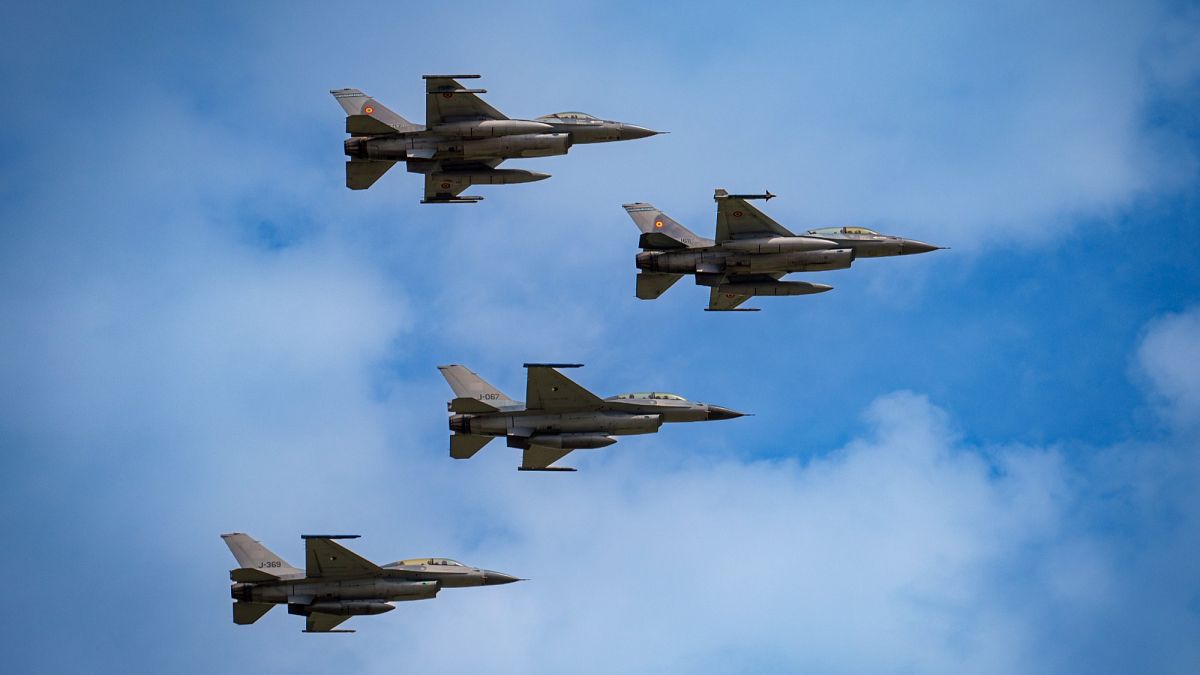Published on
EU finance ministers on Tuesday granted 15 member states the right to deviate from the bloc’s fiscal rules in order to massively ramp up defence spending.
“At this critical juncture, investment in our defence capabilities must remain our top priority,” Stephanie Lose, Economic Affairs Minister for Denmark, which currently holds the rotating presidency of the Council of the EU, said in a statement.
“Today’s activation of the national escape clause will allow member states to ramp up defence spending while maintaining sustainable public finances,” she added.
The countries that have seen their request to activate the national escape clause in the Stability and Growth Pact (SGP) approved are Belgium, Croatia, Czechia, Denmark, Estonia, Finland, Greece, Hungary, Latvia, Lithuania, Poland, Portugal, Slovakia and Slovenia.
Germany has also asked to benefit from more lenient fiscal rules for defence but the Council of the EU is not yet in a position to make a decision as Berlin, whose new government took office in April, has not submitted its medium-term fiscal-structural plan outlining the priority public investments and reforms for the coming years. They’re expected to do so before the end of the month, with their request to activate the national escape clause likely to be voted on in September.
A 2030 deadline
The measure allows those member states to boost defence spending by 1.5% of gross domestic product (GDP) annually for four years without consequences even if this brings their total deficit over the 3% of GDP limit mandated in the SGP.
It is part of the EU’s €800 billion ‘Readiness 2030’ plan to ramp up defence expenditures over the coming four years with the European Commission previously estimating it could see up to €650 billion poured into the sector.
The 16 EU countries that will benefit from more lenient fiscal rules are also members of the NATO military alliance that agreed late last month to more than double its defence spending target to 5% of GDP by 2035.
The new target represents a huge ask for some EU allies with a few – Belgium, Italy, Hungary, Romania, France, Poland, Slovakia – already targeted by Brussels with an Excessive Deficit Procedure due to the poor state of their public finances.
Neutral Malta is also being closely monitored under the same procedure.
While deviating from the fiscal rules for defence will not see them penalised, these eight countries “remain bound by the budgetary rules and must remain committed to the implementation of the revised economic governance framework irrespective of the clause’s activation” for all other expenses, the statement from the Council also said.
The 27 EU member states are meanwhile currently evaluating whether to participate in SAFE, the other major financial pillar included in the plan to rearm the EU. They’re expected to pitch in their projects and requests for funding towards the end of the month with the Commission set to start raising the €150 billion for the scheme on the markets at the beginning of 2026.
The new EU arms race comes amid warnings by intelligence agencies that Russia could be in a position to attack another European country towards the end of the decade.

